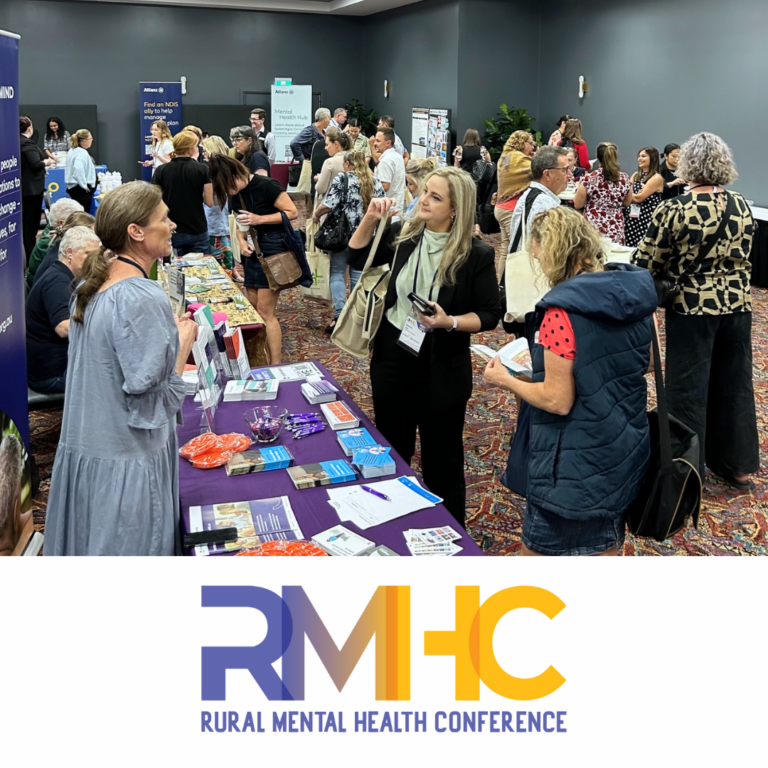November 10, 2023
Rural Mental Health Conference 2023: Insights from MediRecords

Peer-support workers are the future of mental-health service provision, including in rural Australia, where the need is among the highest and access to services among the lowest, the Rural Mental Health Conference was told this week.
Also, the conference heard that talking openly about mental ill health and suicide is essential to reduce stigma, increase understanding and activate prevention initiatives in communities.
MediRecords was an industry sponsor for the conference in Albury, which was attended by mental health professionals, researchers, advocates and others.
Conference co-chair Professor Russell Roberts, of Charles Sturt University and the Manna Institute, opened the conference by dispelling the oft-made claim that rural towns were dying. In fact, they have been growing for 20 years, boosted further by an increase in relocation to rural Australia during the pandemic, he said.
Speakers highlighted workforce challenges including recruitment and retention, and low mental-health literacy, compounded by the housing crisis for people willing to move and live rurally.
“Peer support workers are the future of mental-health service provision,” said
Dr Chris Maylea, Associate Professor of Law at La Trobe University.
Also, he argued that inadequate mental-health services for rural Australians was a breach of human rights.
“Sub-par services because someone lives in a rural area – we should call that a human-rights violation, not a geographic disparity.”
Mental Health Australia CEO Carolyn Nikoloski called for a national human-rights act – one that embedded mental health into human rights.
Other themes from the conference included:
- A dearth of mental health services in rural areas means people with mental ill health end up in the justice system. As the documentary film Solstice stated, people in urgent need of mental health care don’t get a helicopter flight to Melbourne like accident victims; the more likely options are a busy hospital Emergency Department or police custody.
- Telehealth is increasingly essential for providing access to services where few or none are available locally and wait lists are long. The Royal Far West Centre for Rural and Remote Children’s Health gave an example of setting up a farmer with video-call technology so he could join a case conference for his daughter from his tractor. Clean Slate Clinic clinical nurse consultant Fiona Faulkner said the home treatment program enabled people in rural areas to seek support without the fear of being ‘outed’ in their small communities.
- Kelly McGrath, of the Wesley Research Institute, highlighted the way that services need to adapt telehealth to support individuals, ensuring there is personalised tech help and financial support, and sensitivity to how and where people engage with telehealth – from having kids running around in the background or access at the workplace, where there may be insufficient privacy.
- Ruralaid is experiencing a significant spike in demand for its services in Queensland, where farmers have been confronted with floods, bushfires, rising costs and falling returns for produce.
MediRecords is a cloud-hosted electronic health record and client management platform with industry-leading options for secure data sharing. MediRecords supports a broad range of telehealth care providers, including the Victorian Virtual Emergency Department.
Sign up to the newsletter
- What’s happening in health? - 16/07/2024
- Feeling the heat at
Burning GP - 18/06/2024 - Solve Healthcare Challenges with MediRecords APIs - 13/06/2024




